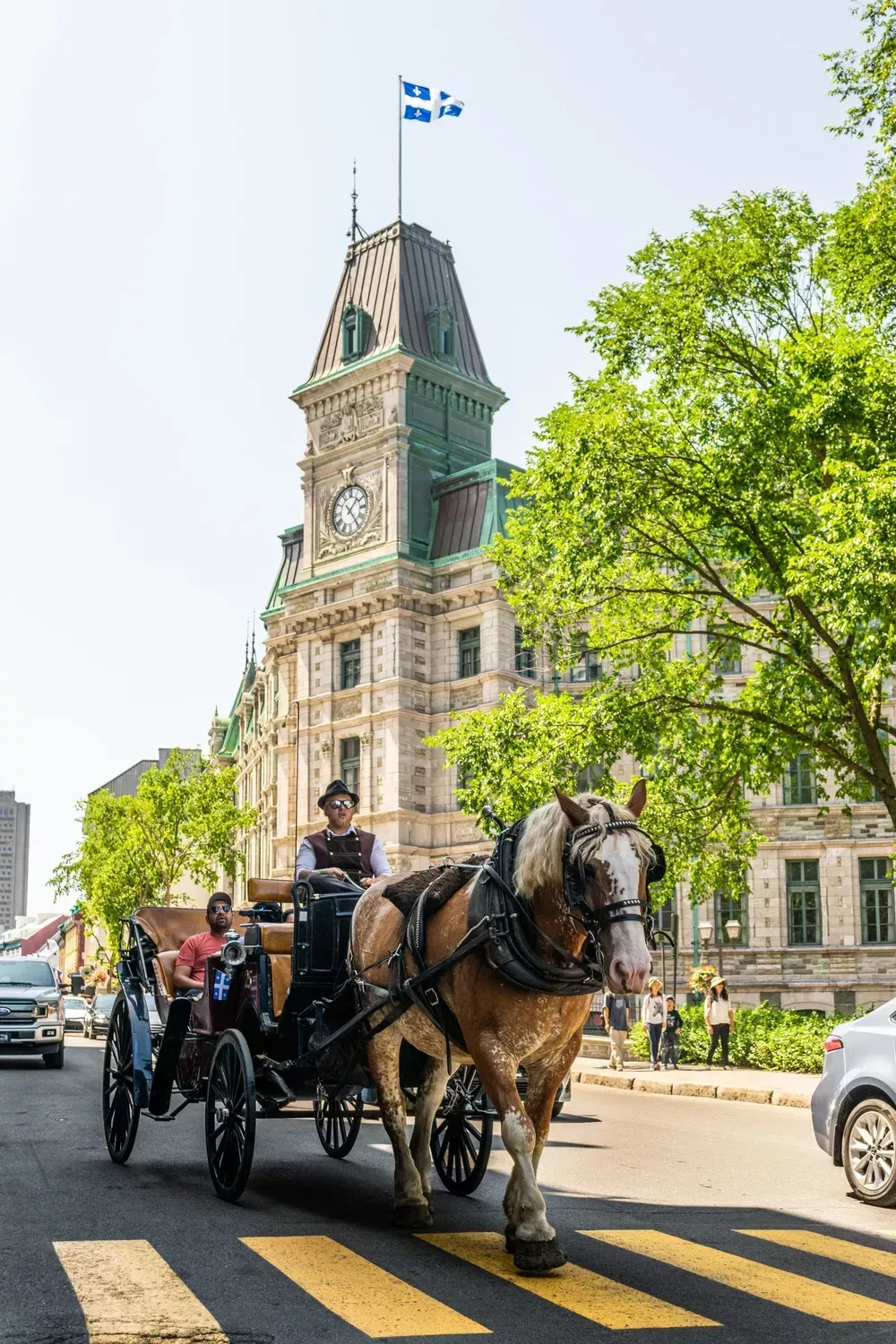The Soul of Quebec: Montréal’s Melting Pot
Montréal is not just a city; it's an experience. Known for its vibrant arts scene, multicultural populace, and the historic charm of Old Montréal, the city effortlessly blends European aesthetics with North American efficiency. With neighborhoods like the Plateau Mont-Royal and the Quartier Latin, Montréal has a pulsating cultural heartbeat.
The Administrative Hub: Quebec City
If Montréal is the cultural and economic hub, Quebec City serves as the political core. It's one of the oldest cities in North America and is home to the provincial government. The city is renowned for its stunning architecture, including the iconic Château Frontenac.
Beyond the Cities: Charlevoix, Sherbrooke, and the Laurentians
- Charlevoix: Famous for its stunning natural scenery and tourism.
- Sherbrooke: Known for its higher education institutions and as a hub for health and technology.
Climatic Intricacies: From Snowy Winters to Balmy Summers
Quebec has a predominantly humid continental climate but varies from maritime conditions in the east to semi-arctic in the far north. Its winters are famous for being long and snowy, while summers are warm and sometimes humid.
The Art of Living: Social Services, Healthcare, and Work-Life Balance
Quebec is known for its robust social programs, from parental leave policies to subsidized daycare. The province takes pride in its healthcare system, which, despite some challenges, provides comprehensive care to its residents.
Population Dynamics: A Multicultural Mosaic within a Francophone Majority
Although a significant portion of Quebec’s population is of French descent, the province is home to a myriad of cultures, making it one of Canada's most diverse regions.
Economic Landscape: A Tale of Natural Resources, Tech, and Culture
Quebec has a diverse economy, including thriving aerospace, information and communications technology, and biotechnology sectors. The province is also rich in natural resources, including hydroelectric power.
How Much Does It Cost to Live Here?
The cost of living in Quebec is generally lower compared to other Canadian provinces like Ontario and British Columbia. Average salaries can vary but expect something around $50,000 CAD per year. Rent for a one-bedroom apartment in the city center will likely cost around $1,000 to $1,500 per month.
Education and Intellectual Aspirations
Quebec is home to several world-class educational institutions, including McGill University and Université de Montréal. The province's unique CEGEP system offers pre-university courses and vocational training post-high school.
What’s the Tax Deal?
Quebec has one of the highest tax rates in Canada, both in terms of income and consumption taxes. However, these funds directly contribute to the province's comprehensive social programs.
Festivals, Music, and Arts: The Lifeblood of Quebec
The province is famous for its numerous festivals, such as the Montreal Jazz Festival and the Winter Carnival in Quebec City. Music and arts are an integral part of life here, and Quebec has produced globally renowned artists like Céline Dion and Cirque du Soleil.
Specialties that Make Quebec Unique
- Poutine: This culinary marvel of fries, gravy, and cheese curds is a must-try.
- Maple Syrup: Quebec is the world’s largest producer of this sweet treat.
Quebec's Connection to Nature: A Realm for Outdoor Enthusiasts
Quebec is a paradise for those who love to be close to nature. With over 20 national parks, including the mesmerizing Parc national de la Gaspésie and the marine wonderland that is the Saguenay–St. Lawrence Marine Park, the province is a playground for hiking, kayaking, skiing, and even whale-watching.
Indigenous Heritage: A Historical Tapestry
Quebec is home to 11 distinct First Nations, and their cultural influence is prominent in several areas. From traditional Pow Wows to modern-day contributions in art and politics, Indigenous communities play a significant role in shaping the province's identity.
Transport and Urban Mobility: How to Navigate Quebec
Getting around in Quebec is generally convenient and sustainable. Montreal’s metro system is one of the busiest in North America, and plans are underway to expand public transit services further. The Réseau express métropolitain (REM) is one such ambitious project aimed at connecting various parts of Montreal to the city center and the airport.
Sustainability: Quebec's Green Ambitions
Quebec has been a leader in Canada when it comes to sustainable practices. The province generates more than 95% of its electricity from renewable sources, mainly hydroelectric power. Programs like "Québec Vert" are actively promoting eco-friendly lifestyle choices among residents.
Nightlife and Culinary Scene: A Taste of the Joie de Vivre
When it comes to food and festivities, Quebec offers a dynamic scene. Montreal is especially known for its buzzing nightlife, with numerous bars, clubs, and lounges that cater to all preferences. The culinary diversity ranges from high-end French cuisine to a plethora of international options.
Family-Friendly Living: It Takes a Village
The province’s focus on social welfare makes it extremely family-friendly. With subsidized daycare and extended parental leave options, Quebec has set a standard for family-centric policies in Canada. Furthermore, places like Quebec City are often ranked among the best cities in Canada to raise a family due to their safety, education, and public services.
Healthcare Innovation: Where Tradition Meets Modernity
Quebec is pioneering in healthcare research and services. The province hosts several research centers, medical tech companies, and innovative healthcare solutions, striving to blend modern medicine with holistic approaches.
Global Influence: From Cirque du Soleil to AI Research
Quebec's influence extends well beyond its borders. Montreal has been a hub for Artificial Intelligence research, attracting global companies and talents. Likewise, cultural exports like Cirque du Soleil have gained international acclaim, showcasing Quebec's creative prowess.
A Note on Language: Bilingualism and Beyond
While French is the official language of the province, English is widely understood, especially in major cities. However, knowing some basic French phrases can go a long way in making local connections.
